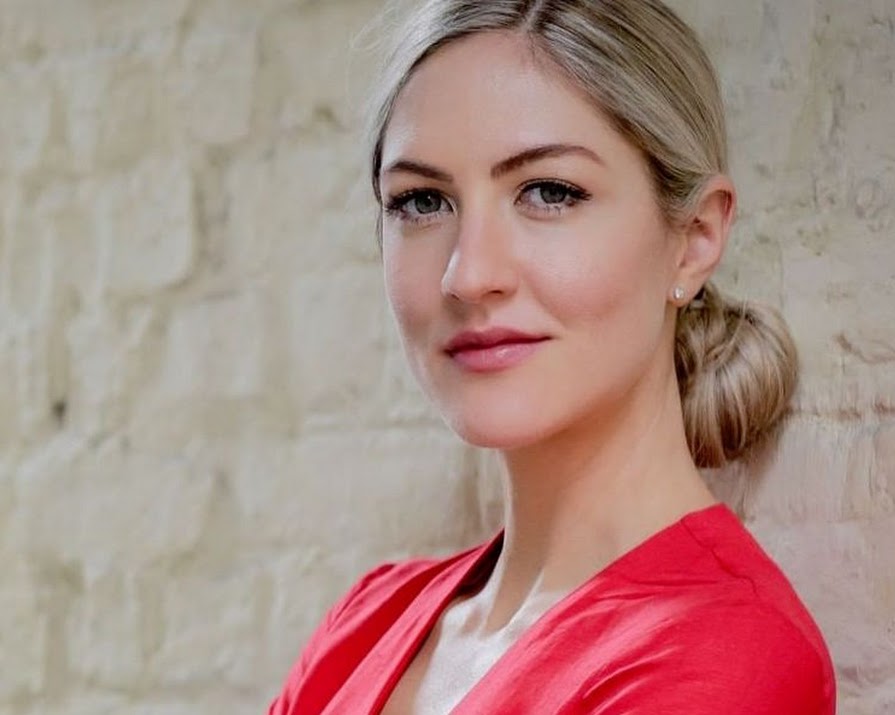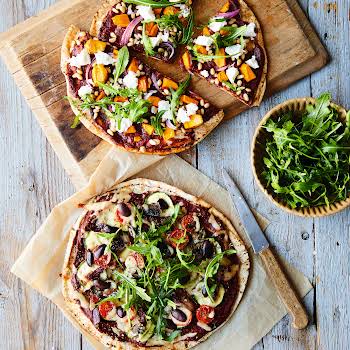By Grace McGettigan
13th Feb 2020
13th Feb 2020
Do you suffer from unusual bowel movements, crampy abdominal pain and bloating? Irritable Bowel Syndrome (or IBS) affects as many as one in five people in Ireland – and it’s twice as common among women than men. We caught up with Dr Megan Rossi to chat about all things gut health. Here are five things you need to know…
Gut health has always been a bit of a taboo subject. Few people feel comfortable chatting about their pooing habits – but why? We all do it (though some more or less frequently than others).
If you suffer from bouts of constipation, diarrhoea, stomach cramps and/or bloating, you’re not alone. Irritable Bowel Syndrome (or IBS) affects one in five people in Ireland, and it’s particularly more common among women than men.
With that in mind, we sat down with Dr Megan Rossi, a registered dietitian with a PhD in gut health, to find out how we can achieve a happier gut.
At the centre of it
Speaking to IMAGE.ie, Megan said, “I was studying nutrition and dietetics at university when my grandma (who had a huge part in my upbringing), passed away from bowel cancer.
“I really hated the gut because of that, and then, when I was working as a dietician, I found it quite striking that patients who had diseases outside of the gut were actually complaining of gut issues too,” she says.
The more Megan (also known as the Gut Health Doctor) looked into it, the more she realised how central our gut is to our overall health. From the brain to the kidneys – the gut is connected (and central) to it all. From that moment, Megan decided to focus her career on improving the gut health of patients worldwide.
 Photo: Sasko Lazarov
Photo: Sasko Lazarov
The 30-point challenge
Our gut is full of bacteria, all of which feed on different sources of dietary fibre. The more types of dietary fibre we eat, the more gut bacteria we can satisfy and the happier our gut will be.
Megan says, “I often set people a target of getting 30 different plant-based foods into their diet a week. I know that sounds like a lot, but actually, it can be quite simple.
“You have to enjoy your food,” Megan says. “If you don’t enjoy your food, it’s hard to comply with it long-term…”
“For example, whatever breakfast you’re having, if you add a teaspoon of mixed seeds (and you get the four-seed mix), that’s four points right there. Instead of just buying red peppers, get the yellow and green peppers too, and that’s another two points,” she explains.
“There are slight differences in the type of plant chemicals in each seed and pepper, which we know feed different types of bacteria in the gut. It’s just about making simple little switches to get in that diversity”.

Go-to foods
Our modern lifestyle involves a lot of eating out and ordering in. Often we’re too busy to cook healthy, nutritious meals – but Megan says this is negatively impacting our gut health.
To thrive, our gut needs as much dietary fibre as possible. Megan says, “Having a diet that’s high in dietary fibre (such as plant-based food, whether it’s whole grains, nuts, seeds, vegetables, fruit, etc.), feeds our gut bacteria; which is then thought to help the health of the rest of our body”. So what should we eat? Megan suggests:
Breakfast:
“I’m a big fan of overnight fermented oats. I make them before I go to bed. I just get my oats, some carrots, some walnuts, chia seeds and some other mixed seeds in there; and I add kefir in, which is like fermented milk. I leave it overnight and the microbes in the kefir start to ferment the oats. It creates the most amazing flavours; I really love that.
“For other people who don’t have kefir, overnight oats with mixed seeds and some fresh fruit is always really good too,” she says.
Lunch:
“I think a small amount of whole grain (such as quinoa or buckwheat), with a mixed salad of some form; some legumes in there; chuck some mixed seeds in there. If you eat animal products, I’m a big fan of salmon, which is really high in Omega 3s and is really good for the gut.
“I’d usually have a sweet snack after lunch (I’ve quite a sweet tooth!) so I’d have something like yoghurt with some fruit in it. Love that”.
Dinner:
“For dinner, I’d typically have something like a stir-fry. Again, it would mainly be based on legumes. I might have some whole wheat pasta in there, or noodles,” Megan says.
Dessert:
“I usually have something chocolate. The best type for your gut bacteria is dark chocolate, but I mix it up. I often have white chocolate (which doesn’t feed your gut bacteria but it feeds my tastebuds!).
“You have to enjoy your food,” Megan says. “If you don’t enjoy your food, it’s hard to comply with it long-term”.
Alcohol and the gut
“Alcohol, in general, if you have quite a lot of it can affect your gut movements; causing diarrhoea in some people. If you have IBS, the gut movements will trigger things like gut pain and a lot of extra bloating,” she explains.
“Cider, in particular, is high in fructose, a fruit sugar. This is normally okay, but in cider, it’s quite a high concentration. If you’re having quite a lot of cider, we’re not very good at digesting all that fructose at once; therefore when it gets into the lower part of your intestine, it can trigger diarrhoea”.
Stress
Food isn’t the only thing that impacts our toilet-going habits. “We know that stress has a huge impact on our gut health, because of our gut/brain communication. Our gut and our brain are talking to each other every couple of seconds,” Megan tells us, “so if we are really stressed up in our heads, that’s having a negative impact on our gut.
“People often associate any sort of gut issues with the food they’ve eaten. They blame it straight away and say, ‘My bloating is because I’m intolerant to this or I’m intolerant to that’… But what we actually have to appreciate is that stress plays such a big role in our gut symptoms. If we are really stressed, any food can potentially trigger bloating in us.
“When we’re leading up to our period (and when we get our period), a lot of women get diarrhoea…”
“That’s why mindfulness is really, really important. Studies suggest that 12 weeks of daily mindfulness can help to regulate things like bloating and other IBS symptoms.
“It can take a bit of time to form a habit, but I would recommend taking about 15 minutes a day to do it. It really ensures the messages going from your brain to your gut are positive and relaxed; because as soon as they get stressed, that can affect your gut health and your gut bacteria”.
Period poops
During your period, do you find yourself doing ‘number two’ a lot more than usual? There’s a reason for that.
“It’s a bit taboo to talk about, but when we’re leading up to our period (and when we get our period), a lot of women get diarrhoea. That’s a scientifically documented thing; it’s changing in the hormone levels which have an effect on our gut motility; our gut movement levels and how our body absorbs water.
“So we do get slightly looser stools when we have our periods. It’s something people often aren’t sure if it’s normal, but it’s 100% normal.
“If you are getting symptoms longer-term, outside of your period, it’s always worth going to see your doctor – but if it’s just around your period, it’s totally normal,” Megan explains.
For more advice or information about IBS or gut health, contact your GP, pharmacist or local healthcare practitioner.
Feature photo: Dr Megan Rossi via @theguthealthdoctor
This article was first published in May 2019.
Read more: What your gut is trying to tell you about your mental health
Read more: How a healthy gut can help improve your skin
Read more: It’s official, ‘tummy troubles’ affect more women than men and here’s why























